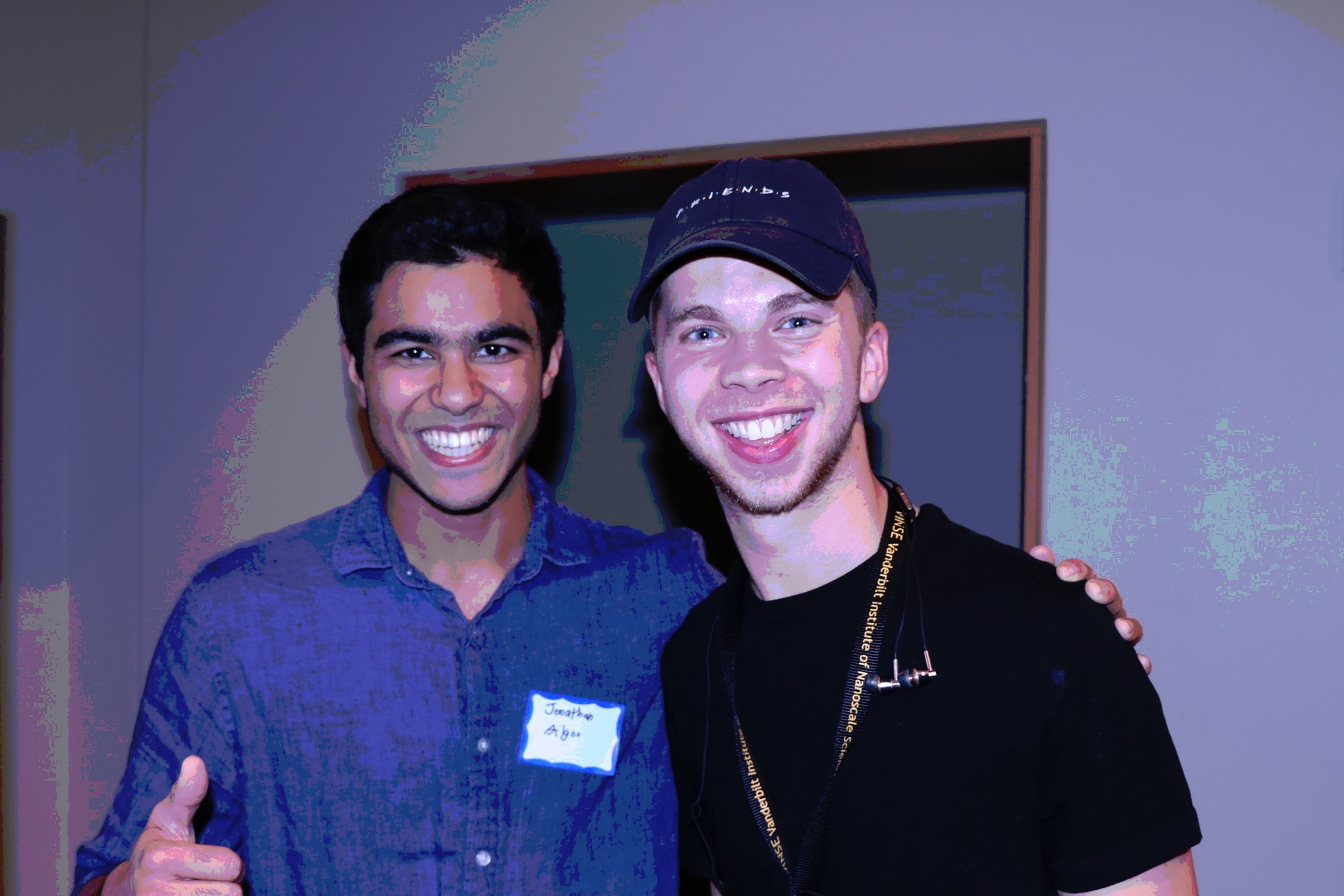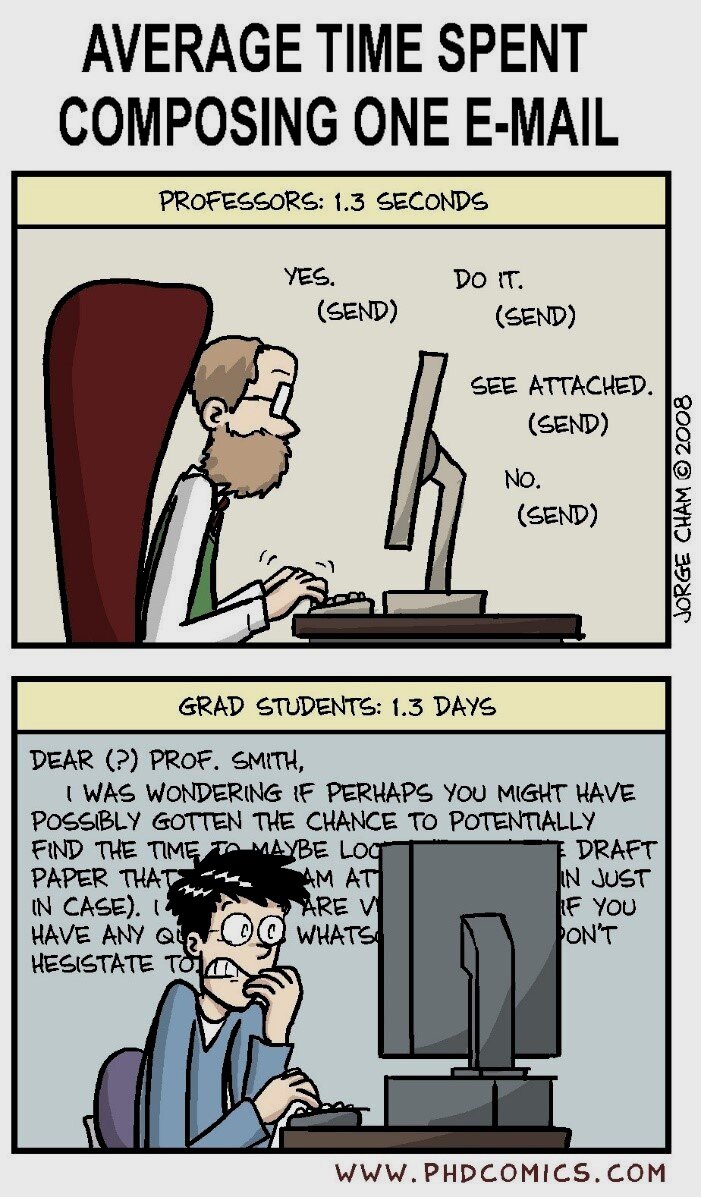Relationships

Networks
Networks are powerful tools
Your circle of influence grows with the connections you establish to build your network. You can use tools like Linkedin to help develop your network.
Networks help people get jobs and advance in their careers. They do things for you without you having to do all the hard work by yourself! In many cases, networks do things that you wouldn’t be able to achieve on your own.
Making strong connections means having people that will be willing to help you access opportunities. You should take those opportunities, or at least explore them, so those people will continue to think of you for future opportunities. It’s okay to say no to something, but make sure you do it respectfully so that you are just closing a door and not burning a bridge.
Your network will shape you. The people you meet, the experiences you have, and the insights you gain all shape who you are. You might meet a great person to model a portion of your life after, or you might discover a niche area that you want to include in your future.
Networks need to be cultivated. By following up with the people you meet- nurturing and fertilizing those connections until they become friends and colleagues, you strengthen your network and prepare it to be fruitful. Conversely, without regular interaction your connections can wither away, so take care of your network and don’t be afraid to prune back when needed to stimulate growth.
Tips and tricks for networking:
Have a go-to question to use when you meet someone new (other than “what do you do?” or “what is your major?”)
Show genuine interest in people
Get people to talk about themselves
Overcome your introversion by putting yourself in smaller groups or on planning committees
Find some common ground on which to connect
Say yes to opportunities if at all possible
General Human Relationships
Remember you are working with people, not robots or non-playable characters
“Clear is kind. Unclear is unkind. Most of us avoid clarity because we tell ourselves that we’re being kind, when what we’re actually doing is being unkind and unfair. Feeding people half-truths or bullshit to make them feel better (which is almost always about making ourselves feel more comfortable) is unkind. Not getting clear with a colleague about your expectations because it feels too hard, yet holding them accountable or blaming them for not delivering is unkind. Talking about people rather than to them is unkind. This lesson can transform your life.” Quote from Brene Brown, Dare to Lead
Everyone has personal and professional obstacles that affect their behavior. We all handle learning, teaching, social interactions, etc. differently. It is very mature to realize that others may let their personal influences impact their interactions with you. It is extremely mature to be understanding and forgiving of that fact.
Be introspective. Just as others may let their personal lives leak into their work, you may be doing the exact same thing. Take time to review your behavior, reinforce the good actions, correct the unfavorable ones, and apologize if you act unprofessionally. It is going to happen- you are going to have a bad morning and send a blunt email, you are going to go out late and cancel an early morning meeting last minute. The key is to recognize how your actions affect others and be considerate of that. Always remember that support and encouragement are great both to receive and to give.
Mentors
Types of Mentors
You will encounter a lot of potential mentors in your career. Typical ones from undergraduate research experiences will include:
Principal Investigators (PIs)
Post Docs
Graduate students
Professors
Recent graduates
More senior undergraduate students
General Tips
Don’t expect more from them than you want them to expect from you
If you have to work with them often, get to know them personally
By default, be as respectful as possible unless told otherwise
Give an appropriate amount of time if you want a rec letter, them to proof-read a paper, etc.
They’re real people with lives that are just as complicated as yours
Always check for correct punctuation, attachments, recipients
It’s okay to follow up if you don’t get a response, but make sure it’s respectful and timely
If you can’t give a full response right away, let them know you’ve read it
Thank you notes are a great way to show appreciation!
Make every interaction a positive and meaningful one
Respect their time
Thank them for things they help you with
Ask how their day is going
Don’t avoid them until you have bad news
Meet deadlines
Don’t agree to deadlines you can’t meet
Keep a pocket of shiny things
Other Professional Relationships
Yourself
“Our deepest fear is not that we are inadequate. Our deepest fear is that we are powerful beyond measure. It is our light, not our darkness that most frightens us. Your playing small does not serve the world. There is nothing enlightened about shrinking so that other people won't feel insecure around you. We are all meant to shine as children do. It's not just in some of us; it is in everyone. And as we let our own lights shine, we unconsciously give other people permission to do the same. As we are liberated from our own fear, our presence automatically liberates others.” Quote by Marianne Williamson
Character is what you do when no one is watching. Be honest with and kind to yourself, first and foremost. Work hard and love what you do!
Don’t falsify your data and don’t plagiarize. Reference any work that isn’t original to you. You will look better when you are being honest than if you get caught in a lie.
Peers
The following tips were submitted by SyBBURE students during a summer 2019 training module, regarding peer-to-peer etiquette:
Follow up with someone after a tough conversation – Alex Jolly
Always be aware/respectful of people’s preferences and time in a professional setting – Yoanna Ivanova, Alice Ding, Minna Apostolova
Don’t interrupt when someone is talking or telling a story. If you start to interrupt someone, stop and give them the floor to say what they wanted to say – Yigit Atay, Adrian Florea, Walt Siv
If you notice someone speaking in a group and being ignored, make eye contact and engage with them. Find a way to get them talking about what they love. Ask questions about what they’re saying – Carly Shafer, Alex Stephens, Dana Herman
Actually listen to what other people say. Respond thoughtfully – Amelia Taylor, Kevin Liu
Make eye contact when talking to peers in order to actively listen – Grace DePietro, Jacob Fine
Don’t generalize or make hasty assumptions in conversation – Hannah Anderson, Amaury Perez
People have different reason to not give a very positive/cheering response after you say hi, so don’t feel discouraged – Heng Sun
Be responsible with commitments. For example, show up to meetings – Uzair Khan, Wills Dunham
Make a decision when asked. Being TOO flexible can be unhelpful too – Stephanie Molitor
Bigwigs
Who are bigwigs? They are important leaders in your field. Maybe they have been around for a long time, maybe they have made big discoveries, or maybe they are who you want to work for in the future. These are people who will be invaluable to have in your network, so you want to make a good impression.
Introduce yourself with your first and last name. Try to work your name into the conversation again before the end of the interaction to increase the chance they will remember you the next time you meet.
If you know you will be meeting them, prepare ahead of time. This will enable you to comment on or even praise their work, which always goes over well. Ask them questions that they will enjoy answering and that you actually care about the answers to, which will make the next tip much easier: look interested while they are talking.
Share something about yourself to make a good and lasting impression. Try to choose an anecdote that meets the following three criteria. It should be: (1) interesting, (2) appropriate, and (3) memorable. Just meeting two of the three requirements is not enough. For example:
“I saw a great talk this morning about a new treatment for gastrointestinal distress,” is interesting and appropriate, but, on its own, will not make you memorable.
“I forgot to pack enough underwear for the conference, so I’m wearing a handtowel,” is interesting and memorable, but it is not appropriate.
“When I get a new batch of data, I like to block off several hours to work on it. I can sit and stare at numbers and graphs for so long it’s crazy. I spent six hours just last week working through a chunk of data. It had been exported wrong and had empty and misordered columns, so I had to reorder them. Then I had to go back through and delete the empty columns, but I messed up the first couple times and kept having to redo it…” [5 minutes of similar droning proceed]. This story is not interesting. It is debatably appropriate. It may be memorable in its duration, but this is not how you want to be remembered.
Match your enthusiasm and the length of the conversation to their body language. Pay attention to whether they were on their way to another meeting, or if it seems that they want to walk away. You have a much better chance of making a good impression if they are receptive to the meeting.
Remember something specific about your conversation that you can mention the next time you meet. Don’t be disappointed if they don’t remember you, just help them remember and try a modified strategy with the next bigwig.
Groups (i.e. meetings)
Be respectful by arriving on time for meetings. This may mean being five minutes early so you can set up your laptop, arrange your notes, or greet a friend before the meeting officially starts. You should be respectful of everyone else’s time, and hopefully the leader will be respectful of yours in return. Being respectful also includes not being a distraction from the speaker, so (especially in larger meetings) do not enter, leave, or talk while someone else is presenting.
Notify the leader if you will be late or absent as soon as you know. Be courteous, apologetic and, if applicable, volunteer a solution for making up for or catching up on what you will be missing.
Be prepared. If you are presenting, this means having your materials and thoughts in order. If you are not presenting, this means coming ready to listen and contribute to any discussion. Be engaged in the conversation by asking insightful questions.
Present in a way that encourages discussion and feedback. A research update is not just about accountability and a recounting of your efforts from recent weeks, it is an opportunity to gain insight from your peers and superiors that can accelerate your future research endeavors.
Digital People (i.e. emails)
Receiving
Read promptly
Respond promptly
Send a courtesy message if it will take a while to prepare a full response
Sending
Read it once more before sending
It’s easy to be misunderstood
Remember the attachment
CC your PI when corresponding with collaborators
Art of the email:
Salutation
- Hello/hi can be acceptable if you already have a prior or more casual relationship with them
2. Title
- Generally avoid “Mr./Mrs./Ms.”
3. Name
- Use last name unless told otherwise
4. Nicety (not always necessary)
5. How They Know You
- Can be helpful in the subject line
6. Reason for contacting them
- Be succinct. Don’t waste their time!
7. Show that you’ve attempted to solve the problem yourself
8. Provide a possible solution or your conclusion from that attempt
9. Polite restatement of exactly what you need from them
10. Sign-off
- Good place to put contact information, your major, important info
Common Issues
Poor Communication
Most issues boil down to communication
Expectations were not clear
Different interpretations of a communication
Ignoring or not seeking the input of others
Making assumptions about others’ roles/actions
Not staying in touch- don’t lose important contacts!
Not expressing gratefulness, not reciprocating
Not being responsive
Irresponsibility
Upholding responsibilities & trust
Meeting deadlines
Being timely/reasonable with requests for help, recommendations, etc.
Doing what you said you would do- be prepared
Do not make excuses- just apologize & fix it
Thoughtlessness- take care of the lab, respect shared resources, consider others’ needs
If other people depend on you for something, it is a high priority
Take the initiative
Negativity and Poor Feedback
Being negative about another person or their work
Implying inferiority or incapability
Giving responses/feedback when you are tired or angry
Starting with negative feedback or tone
Only giving negative feedback
Personalizing negative feedback- phrase it as a question instead, be diplomatic
Giving peer feedback as an order
Be positive & supportive in general
Conflicts of Interest and Responsible Conduct in Research
When research ethics are involved
Be aware of what conduct is appropriate or not
Be aware of resources for dealing with conflicts
Be aware of other people in the situation
Find several trustworthy mentors
Keep good records
Make agreements ahead of time (on paper)
Build networks of trustworthy people
Specific Case Study: Mentor-Mentee Relationship
You work directly with a graduate student in a research lab. You depend on that graduate student to get your project done. But, the graduate student is not always around to help you and often gives you bad advice. This has slowed your project down and you are sensing that your PI is not happy with your progress. Your PI is making excessive demands to meet deadlines. You want the graduate student to help you more, but they are busy all the time, may not have all the relevant expertise, and do not give you all the resources you need. You want to share your frustrations, but you also do not want to burn bridges and you have a short timeline to finish.
What do you do? What do you wish you had done differently? How can you prevent this in the future?
References & Further Reading
https://medium.com/@lportwoodstacer/how-to-email-your-professor-without-being-annoying-af-cf64ae0e4087
Brown, Brene. (2018) Dare to Lead: Brave Work. Tough Conversations. Whole Hearts. New York, NY: Random House
Networking and Connecting with People, Jonathan Ehrman, Team SyBBURE Training Module, July 27 2017
Professional Relationships in Research, Jonathan Ehrman, Team SyBBURE Training Module, October 11, 2018
Professional Etiquette and Conduct, Katrina Leaptrot, Team SyBBURE Training Module, June 10, 2019
Communication with Mentors, Alex Jolly, Team SyBBURE Training Module, June 24, 2019





